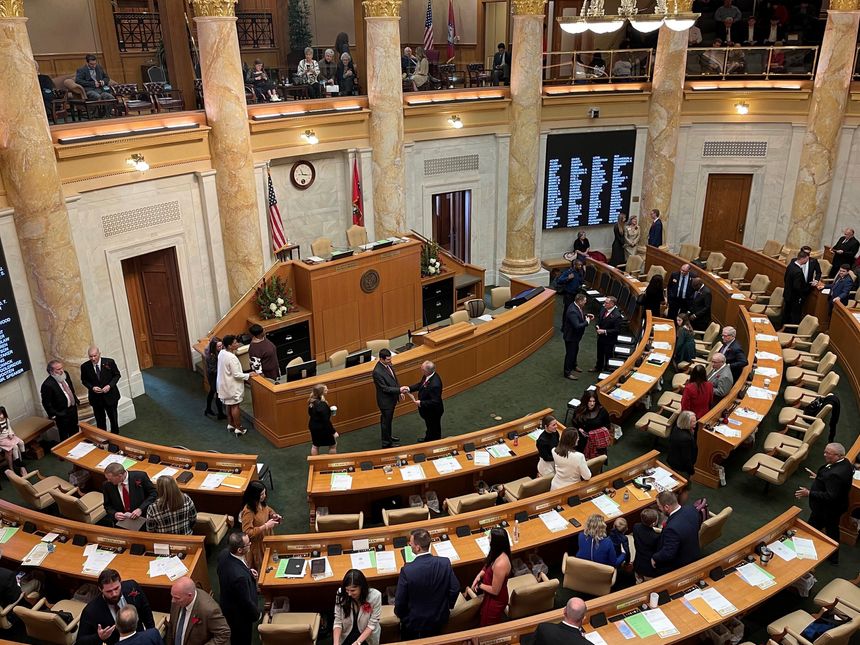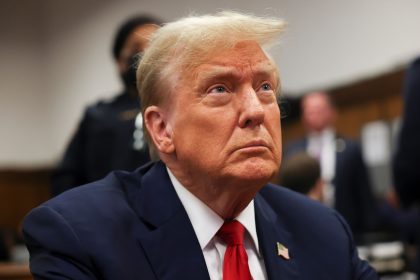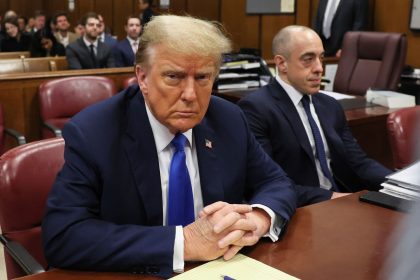8th Circuit to Consider Whether to Limit Election Lawsuits

ST. LOUIS — The 8th U.S. Circuit Court of Appeals will hear oral arguments Wednesday in a case that could see the court sharply restrict lawsuits challenging redistricting decisions and state election rules on the basis of racial discrimination.
The circuit, which covers Iowa, Minnesota, North Dakota, South Dakota, Nebraska, Missouri and Arkansas, has the highest percentage of Republican-appointed judges of any circuit court in the nation.
With that as context, Wednesday’s hearing is being closely watched by voting rights advocates who fear the outcome could severely weaken the federal Voting Rights Act.
The controversy the court is being asked to decide is whether the Arkansas branch of the NAACP and a group called the Arkansas Public Policy Panel have a right to challenge new district lines drawn for the state House of Representatives in the wake of the 2020 census.
The plaintiff groups, who are represented by the American Civil Liberties Union, allege in a lawsuit filed in December 2021, that the new state legislative map illegally dilutes the voting strength of Black residents because it has disproportionately few minority-majority districts.
In February 2022, U.S. District Judge Lee Rudofsky said the plaintiffs had made at least some valid arguments that certain district lines were unlawful, but he ultimately concluded Section 2 of the Voting Rights Act, a core provision of the 1965 law that prohibits discriminatory voting practices, didn’t allow for private lawsuits.
As a result, he said, his court lacked subject matter jurisdiction over the case.
Rather than immediately dismiss the lawsuit, however, Rudofsky held the judgment of dismissal for five calendar days to allow Attorney General Merrick Garland time to decide whether to join the case as a plaintiff and allow the litigation to proceed.
Five days later, the Justice Department responded, informing the court it would not be joining the case as it continues to take the position “that private parties, like the plaintiffs here, have the ability to enforce Section 2 of the Voting Rights Act … through a private right of action.”
Rudofsky, who was appointed to the court by former President Donald Trump, dismissed the case the same afternoon, and the plaintiffs appealed the case to the 8th Circuit the following day.
Should the three-judge panel hearing the case Wednesday decide in favor of the defendant Arkansas Board of Apportionment, the case could have devastating consequences for future plaintiffs in voting rights cases.
It would also represent a major revision in election jurisprudence in the United States.
Courts across the country have for years allowed private citizens to file lawsuits alleging racial discrimination under the Voting Rights Act.
And the Supreme Court has found that other sections of the law allow for private lawsuits.
But Rudofsky said that as he reviewed the relevant case law, he found the justices never directly resolved the question with regard to Section 2.
To bolster his point, he pointed to a concurring opinion in the 2021 case Brnovich v. Democratic National Committee in which Justice Neil Gorsuch (joined by Justice Clarence Thomas) wrote to separately “flag” an issue “Not decide[d]” by the Supreme Court in that case: the existence or nonexistence of a private right of action to enforce Section 2.
“Our cases have assumed — without deciding — that the Voting Rights Act of 1965 furnishes an implied cause of action under Section 2. Lower courts have treated this issue as an open question,” Gorsuch wrote.
Now that the case has been taken up by the 8th Circuit, the Justice Department is getting involved, arguing in a filing that Rudofsky got it wrong when he dismissed the case.
“Section 2 indisputably contains rights-creating language, and Congress’s intent to provide a private remedy to enforce the statute can be inferred from the personal nature of the rights that the VRA protects and from several other VRA provisions that evince Congress’s understanding that Section 2 is privately enforceable,” the department wrote in a brief.
The state of Arkansas is continuing to defend its maps and argue there is no individual enforcement right under Section 2, just a path for the federal government.
“The Voting Rights Act’s innovation, and the source of its success, was its federal enforcement scheme,” the state said in its brief.
Republican attorneys general from 14 states filed an amicus brief in support of Arkansas.
Dan can be reached at [email protected] and at https://twitter.com/DanMcCue
























